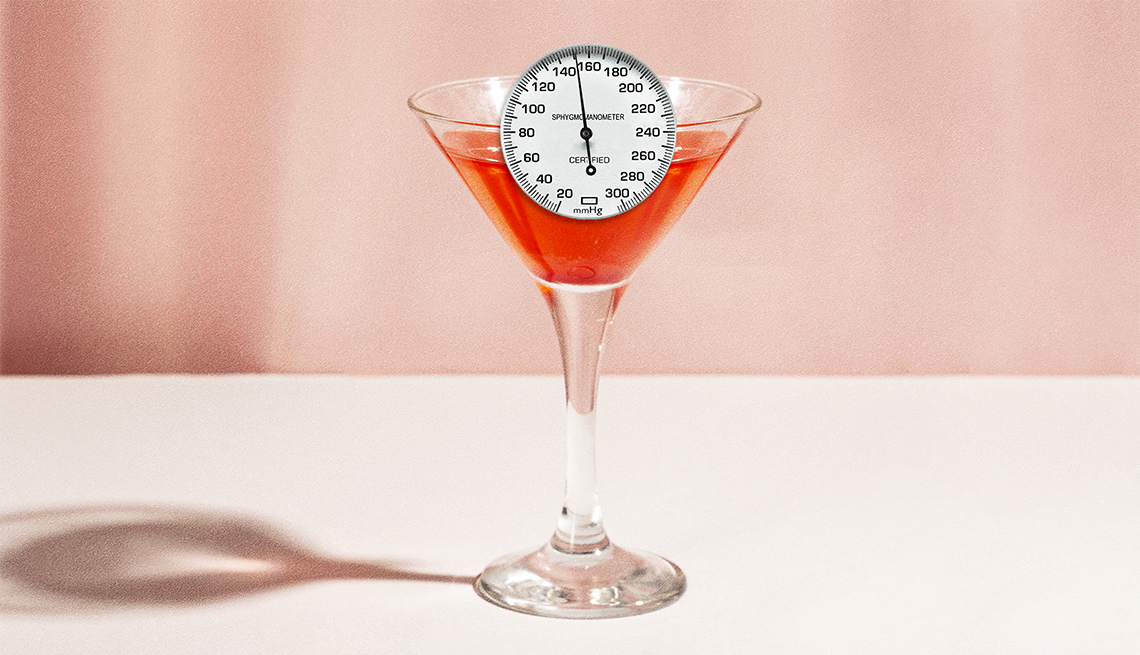Play all audios:
“The population that drinks moderately is two times at higher risk for getting hypertension than those who don’t drink,” says Prashant Vaishnava, M.D., assistant professor of medicine at
Columbia University Vagelos College of Physicians and Surgeons, and codirector of inpatient clinical services for Columbia Interventional Cardiovascular Care. “Those who drink heavily are
three times as likely to be hypertensive” as those who abstain. Does that mean you have to give up drinking altogether? How risky is the occasional drink? Answers ahead. HOW DOES ALCOHOL
AFFECT BLOOD PRESSURE? Paradoxically, research suggests that booze may lower blood pressure at first — specifically, up to 12 hours after ingestion — but it increases blood pressure after
that. Why the reverse course? Alcohol initially relaxes the blood vessels; then those vessels start to constrict once the liver gets involved and begins to metabolize it. That’s true for all
adults. “Both men and women appear to have a direct relationship between alcohol consumption and systolic blood pressure,” says Matthew Tomey, M.D., a cardiologist at the Mount Sinai Fuster
Heart Hospital in New York City. Also playing a role in the relationship between alcohol and blood pressure: alcohol’s empty calories, which can lead to weight gain, itself a risk factor
for hypertension. “Be cognizant of the calories that come with alcoholic beverage consumption, not only from the alcohol but from the other ingredients in a given beverage,” Tomey advises.
Studies have shown that a good percentage of people who drink alcohol also smoke, which can raise blood pressure as well. WHAT ARE THE AGE-RELATED RISK FACTORS OF ALCOHOL ON BLOOD PRESSURE?
Source: Getty Images Older adults — drinkers, nondrinkers, it doesn’t matter — are already at risk for hypertension. Research suggests that 74.5 percent of people 60 and older have high
blood pressure, compared with 54.5 percent of adults ages 40 to 59. Several factors are to blame, one being your body’s network of blood vessels, which changes with age. Arteries get
stiffer, causing blood pressure to go up. That’s partly why people who drink may find that although they’re consuming the same amount they always have, they feel the effects more quickly
or strongly — that’s especially true for older women, according to the National Institute on Aging. A slower metabolism also plays a role, as do medications — prescription, over-the-counter,
even herbal remedies — that are common among older people. “As you grow older, health problems or prescribed medicines may require that you drink less alcohol or avoid it completely,” the
Institute says.

